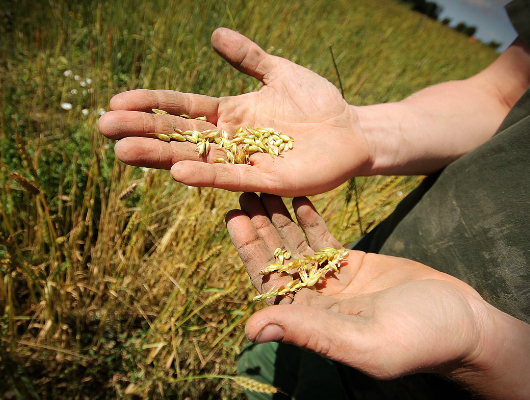Organic Farming Empowers Women in Cameroon

In Cameroon, cultural beliefs have created a perception that farming is for subsistence, not profit- many believe that business farming is not honorable for this reason. AgricInspiration wants to change this notion.
Cameroon is home to cheap, fertile farmland. Observing the abundance of female laborers and the equally plentiful farmland, AgricInspiration believes much opportunity exists for women to support themselves.
Sustainable, organic farming is not just better for the environment. In Cameroon, the organization AgricInspiration plans to provide single mothers with training on sustainable, organic farming techniques.
AgricInspiration will also teach these mothers how to sell their products at local produce markets so they can turn a profit in addition to feeding their families.
How? Wise Nzikie, the founder of the project, plans to recruit local agricultural experts near the town of Bamenda, Cameroon, to assist in training women in nearby rural localities.
The World Bank finds that unemployment causes many social problems among Cameroonians, especially for women. AgricInspiration aims to support disadvantaged women who can not otherwise find work, such as school dropouts, persons with HIV/AIDS and other displaced women.
A key component of AgricInspiration’s project emphasizes mass communication. The organization aims to reach younger women through tools such as social media, television programs and radio to educate and inspire them to embrace agribusiness.
A crowdfunding website, the 1% Club, created a profile for AgricInspiration in the beginning of 2015. Within 25 days, their goal of €15,000 was reached. Nzikie responded on their website, “A million thanks to all who supported us in one way or the other.”
In September, the project also became a beneficiary of The Pollination Project, a social change organization that provides seed grants of $1,000 to people fighting for change and projects that promote a better world for humanity.
The Pollination Project makes one grant every day, beginning in 2013. They focus on discovering grassroots movements that will not likely qualify for other grants or funding from other foundations or institutions.
– Bailey Wenzler
Sources: One Percent Club, Huffington Post, The Pollination Project, World Bank
Photo: Pixabay
